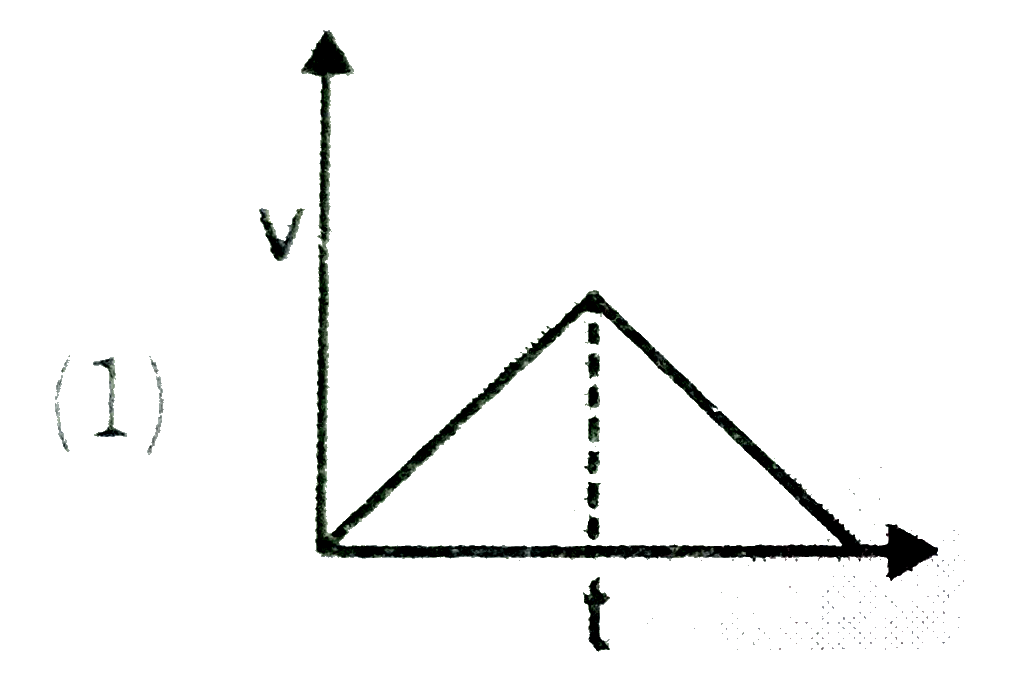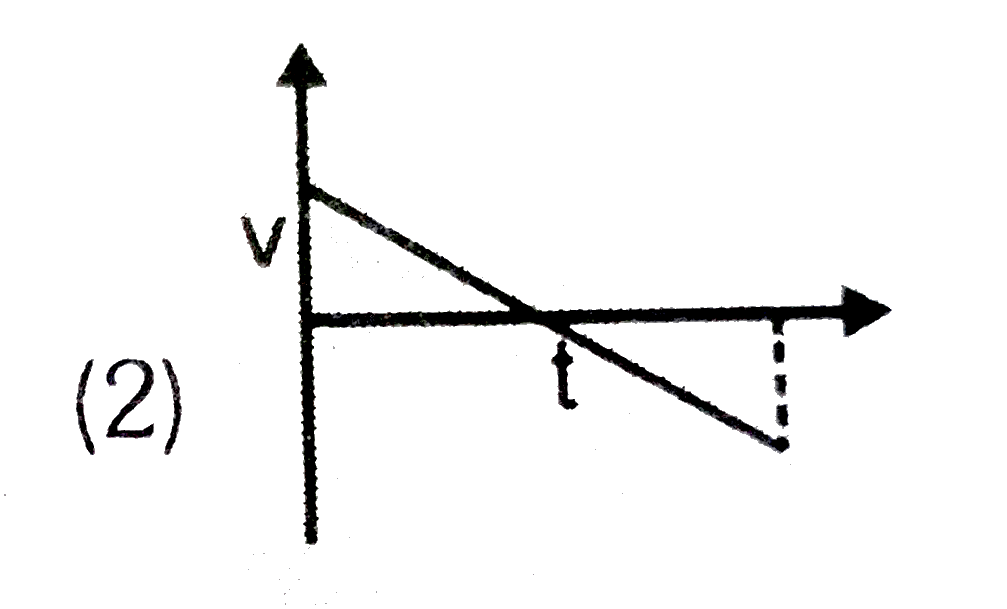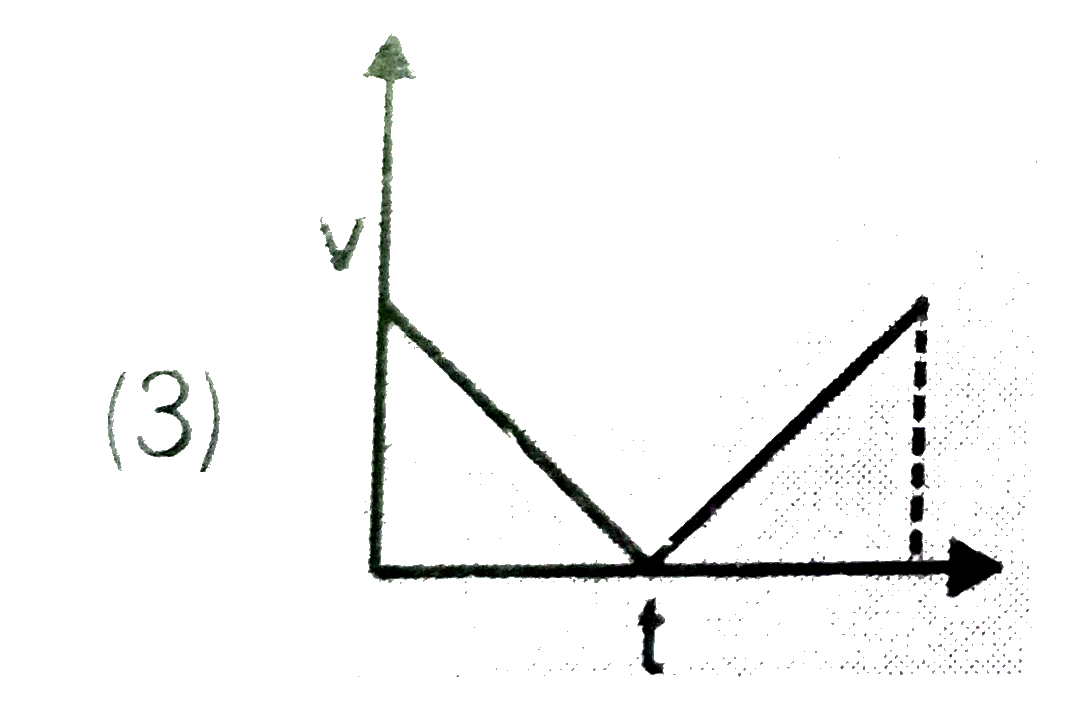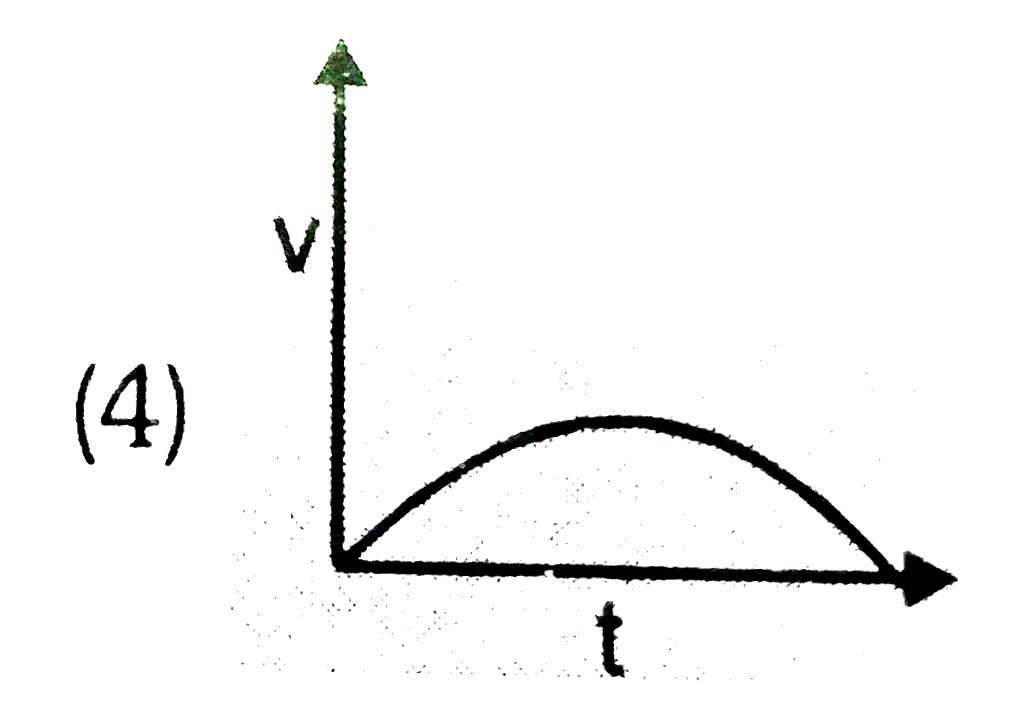A body is projected vertically upward direction from the surface of earth. If upward direction is taken as positive, then acceleration of body during its upward and downward journey are respectively
Positive, negative
Negative, negative
Positive, positive
Negative, positive
The correct Answer is:B
To solve the question regarding the acceleration of a body projected vertically upward and its behavior during its upward and downward journey, we can follow these steps:
1. Understanding the Motion:
- When a body is projected vertically upward, it moves against the force of gravity.
2. Identifying the Direction of Acceleration:
- The only force acting on the body during its motion (both upward and downward) is the gravitational force, which acts downward towards the center of the Earth.
3. Acceleration During Upward Motion:
- As the body moves upward, it experiences a deceleration due to gravity. The acceleration due to gravity (g) acts downward, which we take as negative in our coordinate system where upward is positive.
- Therefore, the acceleration during the upward journey is −g (where g≈9.81m/s2).
4. Acceleration During Downward Motion:
- Once the body reaches its highest point, it starts to fall back down. During this downward journey, the gravitational force still acts downward.
- Thus, the acceleration during the downward journey is also −g.
5. Conclusion:
- The acceleration of the body during its upward journey is −g and during its downward journey is also −g.
Final Answer:
- The acceleration of the body during its upward and downward journey is respectively −g and −g.
---
- When a body is projected vertically upward, it moves against the force of gravity.
- The only force acting on the body during its motion (both upward and downward) is the gravitational force, which acts downward towards the center of the Earth.
- As the body moves upward, it experiences a deceleration due to gravity. The acceleration due to gravity (g) acts downward, which we take as negative in our coordinate system where upward is positive.
- Therefore, the acceleration during the upward journey is −g (where g≈9.81m/s2).
- Once the body reaches its highest point, it starts to fall back down. During this downward journey, the gravitational force still acts downward.
- Thus, the acceleration during the downward journey is also −g.
- The acceleration of the body during its upward journey is −g and during its downward journey is also −g.
- The acceleration of the body during its upward and downward journey is respectively −g and −g.
Topper's Solved these Questions
- MOTION IN A STRAIGHT LINEBook:AAKASH INSTITUTEChapter:MOTION IN A STRAIGHT LINEExercise:ASSIGNMENT (SECTION - B)
Explore 33 Videos
- MOTION IN A STRAIGHT LINEBook:AAKASH INSTITUTEChapter:MOTION IN A STRAIGHT LINEExercise:ASSIGNMENT (SECTION - C)
Explore 37 Videos
- MOTION IN A STRAIGHT LINEBook:AAKASH INSTITUTEChapter:MOTION IN A STRAIGHT LINEExercise:EXERCISE
Explore 30 Videos
- MOTION IN A PLANEBook:AAKASH INSTITUTEChapter:MOTION IN A PLANEExercise:Assignement section -J (Aakash Challengers Questions)
Explore 4 Videos
- MOTION IN STRAIGHT LINEBook:AAKASH INSTITUTEChapter:MOTION IN STRAIGHT LINEExercise:Assignment (SECTION - J)
Explore 2 Videos
Similar Questions
An object is projected vertically upward from the surface of the earth at which above and below the surface acceleration due to gravity is the same.
View SolutionA player throwsa a ball upwards with an initial speed of 29.4ms−1.
(i) What is the direction of acceleration during the upwared motion of the ball?
(ii) What are the velocity and acceleration of the ball at the highest point of its motion?
(iii) Choose the x=0 and t=0 to be the location and time of the ball at its highest point, vertically downward direction to be the positive direction of X-axis, and give the signs of positive, velocity and acceleration of the ball during its upward, and downward motion.
(iv) To what height does the ball rise and after how long does the ball return to the player's hand?( Take g=9.8ms−2, and neglect air resistance).
View Solution
Knowledge Check
A body is projected vertically upward from the surface of the earth, then the velocity-time graph is:-
A B
B C
C D
D
If a ball is thrown upwards from the surface of earth :
AThe earth remains stationary while the ball moves upwardsBThe ball remains stationary while the earth moves downwardsCThe ball and earth both move towards each otherDThe ball and earth both move away from each otherThe acceleration of a body projected upwards with a certain velocity is
A9.8 ms2B−9.8ms2CzeroDinsufficient data
A player throws a ball upwards with an initail speed of 129.4 ms^(-1)(a)Wˆisthedirectionofae≤rationdur∈gtheupwardmotionoftheball?(b)Wˆarethevelocityanda≤rationoftheballattheighestp∮ositsmotion.(c)Ch∞sethe =x 0 aand t=0 be the loction and time at its highest point, vertically downward direction to be the positve direction of X−aξsandgivethesig≠ofposition,velocityandaelrationoftheballdur∈gitsupward,anddownwardmotion.(d)Towˆhightdoestheballriseandafterhowlongdoestheballreturns→theplausrs hands. (Take g= 9.8 ms^(-23) and begleact air resistance)
View SolutionA body is projected vertically upward from the surface of earth with a velocity sufficient to carry it to initially. Calculate the time taken by it to reach height h.
View SolutionWhat happens to a body when it is projected vertically upwards from the surface of the earth with a speed of 11200ms, ? Compare escape speeds for two planets of masses M and 4M and radii 2R and R respectively.
View SolutionVelocity-time curve for a body projected vertically upwards is
View SolutionA particle is projected vertically upwards with a velocity √gR, where R denotes the radius of the earth and g the acceleration due to gravity on the surface of the earth. Then the maximum height ascended by the particle is
View Solution

